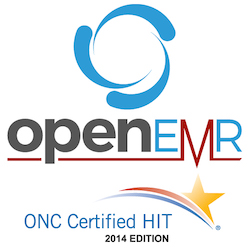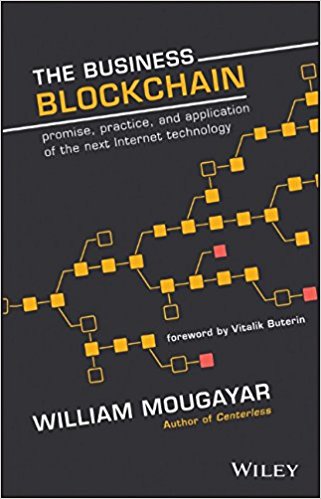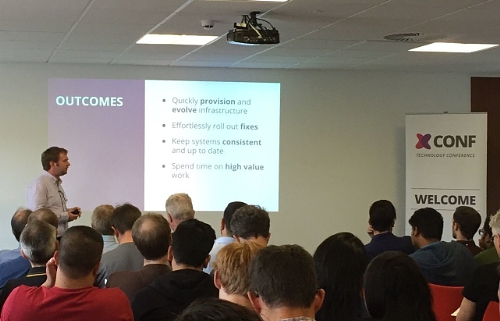Blockchain
See the following -
Open Invention Network Announces Expansion of its Patent Non-Aggression Coverage
 Open Invention Network (OIN), the largest patent non-aggression community in history, with well over 2000 organization members, announced today that it has expanded its patent non-aggression coverage through an update to its definition of the Linux System. The expansion focuses on core open source system and middleware level packages, including software packages that support the growing use of Linux in industries that include finance (e.g., blockchain), automotive, telecommunications and the internet-of-things (IoT). The expansion is part of Open Invention Network's program to regularly revise its Linux System coverage to keep pace with innovation...
Open Invention Network (OIN), the largest patent non-aggression community in history, with well over 2000 organization members, announced today that it has expanded its patent non-aggression coverage through an update to its definition of the Linux System. The expansion focuses on core open source system and middleware level packages, including software packages that support the growing use of Linux in industries that include finance (e.g., blockchain), automotive, telecommunications and the internet-of-things (IoT). The expansion is part of Open Invention Network's program to regularly revise its Linux System coverage to keep pace with innovation...
- Login to post comments
Open Invention Network Surpasses 3,000 Members
 Open Invention Network (OIN), the largest patent non-aggression community in history, announced today that more than 3,000 organizations have joined its community and granted the OIN license to fellow members. To put this milestone into perspective, in only two years, OIN has increased the size of its community by 50 percent. This indicates the growing importance of open source software (OSS) and is an acknowledgment that patent non-aggression is a vital tenet of the open source community.
Open Invention Network (OIN), the largest patent non-aggression community in history, announced today that more than 3,000 organizations have joined its community and granted the OIN license to fellow members. To put this milestone into perspective, in only two years, OIN has increased the size of its community by 50 percent. This indicates the growing importance of open source software (OSS) and is an acknowledgment that patent non-aggression is a vital tenet of the open source community.
- Login to post comments
Open Source Initiative Names Stefano Maffulli As First Executive Director
 The Open Source Initiative ® (OSI), stewards of the Open Source Definition that sets the foundation for the open source ecosystem, is excited to announce Stefano Maffulli as its first Executive Director. The appointment is a key step for the transformation of OSI into a professionally managed organization, a process that the Board of Directors started in 2020. After an expansive search led by OSI’s purpose-built staffing committee, the Board of Directors appointed Maffulli, an experienced international leader in enterprise and open source environments.
The Open Source Initiative ® (OSI), stewards of the Open Source Definition that sets the foundation for the open source ecosystem, is excited to announce Stefano Maffulli as its first Executive Director. The appointment is a key step for the transformation of OSI into a professionally managed organization, a process that the Board of Directors started in 2020. After an expansive search led by OSI’s purpose-built staffing committee, the Board of Directors appointed Maffulli, an experienced international leader in enterprise and open source environments.
- Login to post comments
OpenEMR Consortium Unveils Proposal for an Open Source U.S. Coast Guard EHR
 ...a consortium of OpenEMR vendors united as one to propose an open source solution for a modern, customizable, and cost effective EHR to the USCG. The OpenEMR Consortium submitted their proposal to the USCG on June 2nd, 2017 and it was released to the public on July 5th, 2017. The proposal is based on the EHR software package, OpenEMR. OpenEMR is an open source, fully functional EHR software package that is ONC Certified as a Complete EHR.
...a consortium of OpenEMR vendors united as one to propose an open source solution for a modern, customizable, and cost effective EHR to the USCG. The OpenEMR Consortium submitted their proposal to the USCG on June 2nd, 2017 and it was released to the public on July 5th, 2017. The proposal is based on the EHR software package, OpenEMR. OpenEMR is an open source, fully functional EHR software package that is ONC Certified as a Complete EHR.
- Login to post comments
OSEHRA 2017: Open Source Becomes Mainstream in the Healthcare Industry
 One of the most exciting things about the OSEHRA 2017 Open Source Summit was to see so many leading edge open source health IT solutions, and to hear reports of the major strides they are making around the world. Our very own Editor-in-Chief, Roger A. Maduro gave a presentation on the state of open health IT. The room was absolutely packed, with standing room only. Maduro started his presentation by pointing out that during the recent HIMSS17 conference in Orlando, Florida, more than half of of the 300 sessions of the conference were based on open source solutions such as FHIR, Blockchain, Interoperability and the open/modular IT strategy being followed by Medicaid.
One of the most exciting things about the OSEHRA 2017 Open Source Summit was to see so many leading edge open source health IT solutions, and to hear reports of the major strides they are making around the world. Our very own Editor-in-Chief, Roger A. Maduro gave a presentation on the state of open health IT. The room was absolutely packed, with standing room only. Maduro started his presentation by pointing out that during the recent HIMSS17 conference in Orlando, Florida, more than half of of the 300 sessions of the conference were based on open source solutions such as FHIR, Blockchain, Interoperability and the open/modular IT strategy being followed by Medicaid.
- Login to post comments
Silicon Valley Was Going to Disrupt Capitalism. Now It’s Just Enhancing It
 The tech giants thought they would beat old businesses but the health and finance industries are using data troves to become more, not less, resilient. The chances that, in a few years’ time, people will be able to receive basic healthcare without interacting with a technology company became considerably smaller after recent announcements of two intriguing but not entirely unpredictable partnerships. One is between Alphabet, Google’s parent company, and pharmaceuticals giant GlaxoSmithKline...
The tech giants thought they would beat old businesses but the health and finance industries are using data troves to become more, not less, resilient. The chances that, in a few years’ time, people will be able to receive basic healthcare without interacting with a technology company became considerably smaller after recent announcements of two intriguing but not entirely unpredictable partnerships. One is between Alphabet, Google’s parent company, and pharmaceuticals giant GlaxoSmithKline...
- Login to post comments
SimplyVital Health Partners With Toro Risk Consulting Group On Transformational Blockchain Healthcare Technology
 SimplyVital Health (SVH) and Toro Risk Consulting Group, LLC (Toro) have announced an affiliation that brings the transformational healthcare technology of SVH together with the marketing, legal, and risk expertise of Toro. Toro recognized early on the potential that SVH's pioneering platform has to help providers transition from fee-for-service to value-based healthcare. New value-based payment models, such as bundled payments, allow providers to realize savings if they can decrease the average cost of patient care...
SimplyVital Health (SVH) and Toro Risk Consulting Group, LLC (Toro) have announced an affiliation that brings the transformational healthcare technology of SVH together with the marketing, legal, and risk expertise of Toro. Toro recognized early on the potential that SVH's pioneering platform has to help providers transition from fee-for-service to value-based healthcare. New value-based payment models, such as bundled payments, allow providers to realize savings if they can decrease the average cost of patient care...
- Login to post comments
The Blockchain Interview with Jason Goldwater
 There are three, initially, that it has the potential to solve. First is access to data. The way that systems have been set up in hospitals or large integrated physician networks is that the data will either reside in a centralized server or now the trend is to reside it in a cloud. That’s fine and that certainly has been effective, but you’re talking about a large consolidation of data in a centralized location. Blockchain is very different because it is what is known as distributed ledger technology...
There are three, initially, that it has the potential to solve. First is access to data. The way that systems have been set up in hospitals or large integrated physician networks is that the data will either reside in a centralized server or now the trend is to reside it in a cloud. That’s fine and that certainly has been effective, but you’re talking about a large consolidation of data in a centralized location. Blockchain is very different because it is what is known as distributed ledger technology...
- Login to post comments
The Blockchain Is the New Google
 At its core, the blockchain is a technology that permanently records transactions in a way that cannot be later erased but can only be sequentially updated, in essence keeping a never-ending historical trail. This seemingly simple functional description has gargantuan implications. It is making us rethink the old ways of creating transactions, storing data, and moving assets, and that’s only the beginning. The blockchain cannot be described just as a revolution. It is a tsunami-like phenomenon, slowly advancing and gradually enveloping everything along its way by the force of its progression. Plainly, it is the second significant overlay on top of the Internet, just as the Web was that first layer back in 1990. That new layer is mostly about trust, so we could call it the trust layer.
At its core, the blockchain is a technology that permanently records transactions in a way that cannot be later erased but can only be sequentially updated, in essence keeping a never-ending historical trail. This seemingly simple functional description has gargantuan implications. It is making us rethink the old ways of creating transactions, storing data, and moving assets, and that’s only the beginning. The blockchain cannot be described just as a revolution. It is a tsunami-like phenomenon, slowly advancing and gradually enveloping everything along its way by the force of its progression. Plainly, it is the second significant overlay on top of the Internet, just as the Web was that first layer back in 1990. That new layer is mostly about trust, so we could call it the trust layer.
- Login to post comments
The Permanent Web for Healthcare with IPFS and Blockchain
How do you determine if your organization is designing innovating experiences? There is a simple question that provides that answer. Ask yourself, “Is the organization talking about IPFS?” If the answer is yes, you’re likely relevant to the healthcare innovation discussion. If, however, the answer is no, your organization has missed the innovation bus. IPFS, a foundational technology, will transform healthcare by 2020...
- Login to post comments
ThoughtWorks Sells Out Third Annual XConf Manchester
 ThoughtWorks, the leading global, digital transformation consultancy, sold out its third annual tech conference, XConf, in Manchester on Thursday 14th July - another sign that Manchester's tech community continues to thrive and grow. From building a LEGO set to demonstrate software development, to illustrating the history of blockchain as a spotlight on the future, the one-day conference addressed the hottest trends and topics in technology right now...
ThoughtWorks, the leading global, digital transformation consultancy, sold out its third annual tech conference, XConf, in Manchester on Thursday 14th July - another sign that Manchester's tech community continues to thrive and grow. From building a LEGO set to demonstrate software development, to illustrating the history of blockchain as a spotlight on the future, the one-day conference addressed the hottest trends and topics in technology right now...
- Login to post comments
Unicef Is Funding Blockchain and Health Tech to Solve the World’s Biggest Problems
The United Nations has announced the first five startups to receive investment through its its $9 million (£7.2m) innovation fund. Unicef, the UN's children's charity, will be giving seed funding to companies working to create affordable mobile connectivity, blockchain in childhood development, data collection in maternal care, and technology to help improve literacy skills. The funding comes as part of Unicef's Innovation Fund – launched in February – and will see the organisation put up to $100,000 into each of the five firms...
- Login to post comments
Using Digital Ledger Technology To Put Physicians Back In Control
 Our healthcare system is failing. It costs more and has overall worse outcomes than any other industrialized nation. It is failing because those on the front lines of healthcare - the physicians and patients- have no say in how the system is run. Distributed Ledger Technology (DLT) - otherwise known as blockchain - has the ability to change that. DLT allows for secure direct peer to peer (In healthcare this means patient to doctor and doctor to doctor) communication and data transfer. No more storage of private information and transactions on centralized data capturing systems like electronic health records platforms.
Our healthcare system is failing. It costs more and has overall worse outcomes than any other industrialized nation. It is failing because those on the front lines of healthcare - the physicians and patients- have no say in how the system is run. Distributed Ledger Technology (DLT) - otherwise known as blockchain - has the ability to change that. DLT allows for secure direct peer to peer (In healthcare this means patient to doctor and doctor to doctor) communication and data transfer. No more storage of private information and transactions on centralized data capturing systems like electronic health records platforms.
- Login to post comments
Visa Introduces International B2B Payment Solution Built on Chain’s Blockchain Technology
Visa Inc. today announced a preview of Visa B2B Connect, a new platform that Visa is developing to give financial institutions a simple, fast and secure way to process business-to-business payments globally. Visa is working with Chain to build Visa B2B Connect using Chain Core, an enterprise blockchain infrastructure that facilitates financial transactions on scalable, private blockchain networks. Building on this technology, Visa is developing a new near real-time transaction system designed for the exchange of high-value international payments between participating banks on behalf of their corporate clients...
- Login to post comments
We Have Seen the Future, and It Is...Estonia?
 Like me, you may not have been paying close attention to what has been going on in Estonia. That's probably something many of us should change, at least anyone interested in our digital future(s). OK, I have to admit: I had to look Estonia up on a map. I knew it was in northern Europe, and that it had been involved in the whole U.S.S.R. debacle. As it turns out, Estonia sits just across the Gulf of Finland from -- that's right -- Finland, and across the Baltic Sea from Sweden. Skype was invented there, if you're keeping score. More to the point, over the last twenty years it has evolved into arguable the most advanced digital society in the world.
Like me, you may not have been paying close attention to what has been going on in Estonia. That's probably something many of us should change, at least anyone interested in our digital future(s). OK, I have to admit: I had to look Estonia up on a map. I knew it was in northern Europe, and that it had been involved in the whole U.S.S.R. debacle. As it turns out, Estonia sits just across the Gulf of Finland from -- that's right -- Finland, and across the Baltic Sea from Sweden. Skype was invented there, if you're keeping score. More to the point, over the last twenty years it has evolved into arguable the most advanced digital society in the world.
- Login to post comments